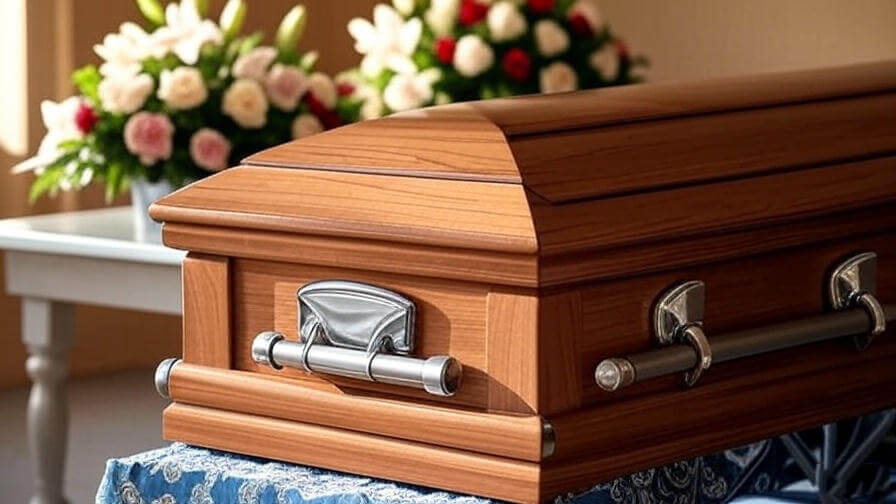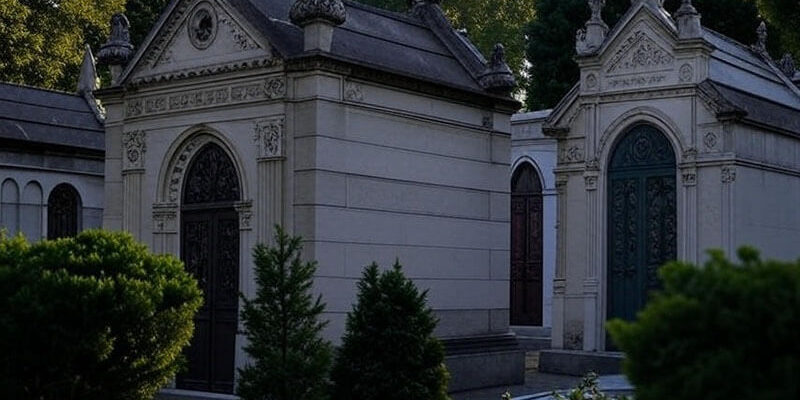Do Caskets Leak in Mausoleums?
When people choose a mausoleum, they often hope it will keep a loved one safe, dry, and dignified for many years. The idea of a casket leaking in such a place can cause real concern. To answer the question, we need to look at how caskets are made, how mausoleums are built, and what can happen over time.
What Is a Mausoleum?
A mausoleum is a building where caskets are placed above ground. Some are private family structures, while others are public and serve many families. Inside, caskets rest in sealed spaces called crypts. Many cemeteries offer mausoleum options as part of their funeral svc (service) plans.
How Caskets Are Designed
Most caskets are made of metal or hardwood. Many metal caskets are “sealed” with a gasket and locking system. The idea is to limit air, moisture, and insects from getting inside. Some even have inner liners for extra protection. However, no casket is completely air-tight forever. Over time, materials can break down.
Wood caskets, while beautiful, are more porous. They absorb moisture more easily. Families may choose them for personal or cultural reasons, but they offer less long-term sealing than metal.
What Causes Leaks?
Leaks in a casket can happen if:
-
Condensation builds inside due to temperature changes.
-
The gasket or seal wears down.
-
There is damage during transport or placement.
-
The casket was not sealed well from the start.
In a mausoleum, the temperature can shift with the seasons. If warm, moist air enters a cooler crypt, condensation can form inside the casket. This can cause liquids or odors to escape over time.
Real Example from a Cemetery
At Green Hills Memorial Park in California, a family reported a strange odor near their family crypt in the 1990s. Staff inspected and found that a casket had develped a leak due to pressure from internal gases. The casket was metal, sealed, and placed in a well-built mausoleum. Yet, because of heat and humidity, gases built up faster than expected. This example shows that even high-quality products in well-kept places can have issues.
The Role of Mausoleum Venting
Modern mausoleums are designed with vent systems to control odor and moisture. These vents move air through the building and release gases safely. Without proper venting, any leak or odor from a casket can become noticeable.
Some mausoleums also use a process called “entombment sealer” in the crypt. This adds a layer between the casket and the outside space. Funeral homes (FHs) may recommend this step for long-term placement.

Facts from the Industry
-
The U.S. Federal Trade Commission (FTC) states that no casket can prevent decomposition forever.
-
The Natl. Funeral Directors Assn. (NFDA) notes that sealed caskets can sometimes speed up decomposition because gases are trapped inside.
-
In humid climates, mausoleums must have climate control or ventilation to reduce the risk of leaks.
What Families Can Do
Families can take steps to reduce the risk:
-
Choose a mausoleum with good maintenance and ventilation.
-
Ask the FH about the type of casket and its sealing method.
-
Understand the warranty or guarantee on the casket.
-
Visit the mausoleum every few yrs. to check for any signs of problems.
Emotional Impact
When a family learns about a casket leak, the emotional effect can be strong. The thought of a loved one’s resting place being disturbed feels upsetting. Cemeteries often work quickly to fix the problem, reseal the casket, and clean the crypt. Having a clear plan and open talk with the cemetery staff can give peace of mind.
Final Thoughts
Do caskets leak in mausoleums? The answer is yes, they can, but it is not common. Leaks may happen due to natural processes, wear on seals, or changes in temperature and humidity. With good design, maintenance, and proper materials, the risk can be reduced.
Choosing a mausoleum is not just about avoiding rain or soil. It is about a safe, dignified, and well-cared-for place. Families who ask questions, understand the limits of products, and select well-built facilities will likely have fewer worries.







